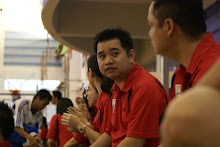Full Abstract
The authors examined how the effectiveness of feedback for the learning of complex motor skills is affected by the focus of attention it induces. The feedback referred specifically either to body movements (internal focus) or to movement effects (external focus). In Experiment 1, groups of novices and advanced volleyball players (N = 48) practiced "tennis" serves under internal-focus or external-focus feedback conditions in a 2 (expertise) x 2 (feedback type) design. Type of feedback did not differentially affect movement quality, but external-focus feedback resulted in greater accuracy of the serves than internal-focus feedback during both practice and retention, independent of the level of expertise. In Experiment 2, the effects of relative feedback frequency as a function of attentional focus were examined. A 2 (feedback frequency: 100% vs. 33%) x 2 (feedback type) design was used. Experienced soccer players (N = 52) were required to shoot lofted passes at a target. External-focus feedback resulted in greater accuracy than internal-focus feedback did. In addition, reduced feedback frequency was beneficial under internal-focus feedback conditions, whereas 100% and 33% feedback were equally effective under external-focus conditions. The results demonstrate the effectiveness of effect-related, as opposed to movement-related, feedback and also suggest that there is a need to revise current views regarding the role of feedback for motor learning.
Acquisition and Performance of Sports Skills provides students with the theoretical and practical background that is necessary for an understanding of the basics of skill acquisition and performance. This understanding is founded on the student's existing knowledge of sport and leads into the subject, using a student centred, problem-solving approach. The first half of the book examines the nature of sports performance and the second skill acquisition. There is a debate among researchers into psychomotor learning: the ecological versus the cognitive approach. Because this book is aimed clearly at students taking a first course in the subject the author includes examples from both schools of thought thus ensuring a balanced approach.
- looks at skill acquisition firmly within the context of sports performance
- takes students' practical experience as a starting point then clearly explains the underlying theories
- presents both cognitive and ecological approaches to the subject to give a balanced view
- excellent pedagogy including problem-solving tasks, practical experiments and revision notes at the end of chapters
Written by an author with many years teaching, research and practical coaching experience, Acquisition and Performance of Sport Skills proves invaluable for students of sport and exercise science taking a first course in skill acquisition, motor learning and/or motor control.
Acquisition and Performance of Sports Skills provides students with the theoretical and practical background that is necessary for an understanding of the basics of skill acquisition and performance. This understanding is founded on the student's existing knowledge of sport and leads into the subject, using a student centred, problem-solving approach. The first half of the book examines the nature of sports performance and the second skill acquisition. There is a debate among researchers into psychomotor learning: the ecological versus the cognitive approach. Because this book is aimed clearly at students taking a first course in the subject the author includes examples from both schools of thought thus ensuring a balanced approach.
- looks at skill acquisition firmly within the context of sports performance
- takes students' practical experience as a starting point then clearly explains the underlying theories
- presents both cognitive and ecological approaches to the subject to give a balanced view
- excellent pedagogy including problem-solving tasks, practical experiments and revision notes at the end of chapters
Written by an author with many years teaching, research and practical coaching experience, Acquisition and Performance of Sport Skills proves invaluable for students of sport and exercise science taking a first course in skill acquisition, motor learning and/or motor control.




No comments:
Post a Comment